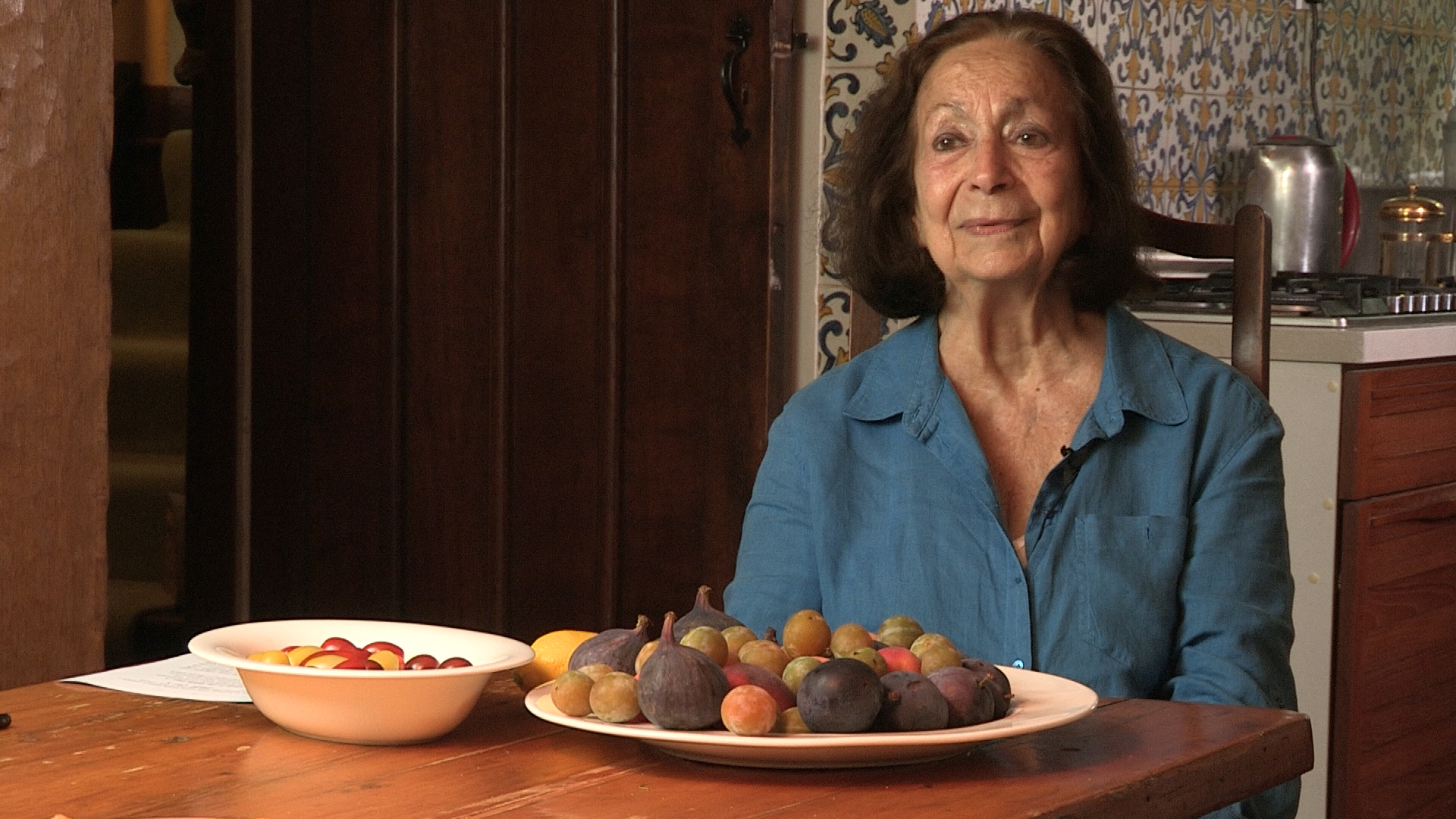NEXT STORY

An invitation from Mai Ghoussoub
RELATED STORIES

NEXT STORY

An invitation from Mai Ghoussoub
RELATED STORIES


|
Views | Duration | |
|---|---|---|---|
| 121. Learning why my tabbouleh was wrong | 2 | 02:58 | |
| 122. Rada Salaam's complicated recipe | 1 | 05:03 | |
| 123. An invitation from Mai Ghoussoub | 01:35 | ||
| 124. The hostile librarian in Beirut | 1 | 03:20 | |
| 125. What motivates me | 04:00 | ||
| 126. My kibbeh twist | 01:31 | ||
| 127. Visit to Egypt after 30 years | 3 | 02:01 | |
| 128. What has changed in Egypt | 2 | 00:52 | |
| 129. My research on the Ancient Egypt | 03:02 | ||
| 130. Travelling through Egypt | 1 | 03:08 |


To tell you about the young woman, she wasn't so young anymore. But I had known her as a girl. She was called Rana Salaam. And she was an artist, she'd been at a college of art. But I had met her because I had met her mother long before when she was a little girl. Her mother had come during the civil war to London. And she had written to me from Lebanon to say, 'You have forgotten to put two dishes that are really, really important in your fist book'. And she said, 'Can I come and give you the recipes?' And she said, 'Can I meet you at Claridge's?'. No, sorry, it was the Ritz. And so, we exchanged letters and so I was going to meet her at the Ritz and exactly for tea, on a day. And I went to the Ritz, and I sat there, and, in the end, I ordered tea. And I didn't see her. And then there was music there, and she was there but we didn't recognise each other.
And then she wrote me another letter and she said, 'You know what, I'll come to your house, and I'll cook these two dishes'. And she said, 'Can you buy chicken?', can you buy this, can you buy that. Can you buy tahina... No, she said, 'I brought the tahina, from Lebanon'. She had brought several things. In the end she had brought a dish, a copper dish, fantastic, that was lined with something that I didn't want to cook in. So, I didn't use it. But she had brought several things. But my mother told me, when I told her, she's coming... My mother said, 'She might put a bomb in your house'. It turned out she was actually of Palestinian origin but a grand family who... she had studied in America. She had gone to university, and she had married Salaam, who was one of the great families of Lebanon. One of the uncles of the Prime Minister or something... They were Muslims and she was Christian, actually.
So, she had come, and we had cooked at home. And the dish is in Arabesque. It was a bit too difficult, but I thought... because she had died since, she had died, and I didn't want to betray her. She had given me the recipe a long while ago. And by the time it got into Arabesque because recipes that I kept collecting all the time were there. Where I kept finding them, I wanted her two recipes, but I didn't want to betray her. So, the recipe had a layer of rice, a layer of chicken or something, or stuffed aubergines, and had too many things. And I knew nobody is going to make it. But then she did give me a simple version of what she called fatta. And it was chickpeas, yoghurt, tahina and it's something that my daughter-in-law made the other day for my birthday. Just last week. And it's gone into the Book Med as well. And so, there was, this period in Lebanon has brought so much for me, not only for Arabesque. But also because I did get to meet a lot of people. Also with him, but people that I had met in London.
Claudia Roden (b. 1936) is an Egyptian-born British cookbook writer and cultural anthropologist of Sephardi/Mizrahi descent. She is best known as the author of Middle Eastern cookbooks including A Book of Middle Eastern Food, The New Book of Middle Eastern Food and The Book of Jewish Food.
Title: Rada Salaam's complicated recipe
Listeners: Nelly Wolman
Claudia Roden talking to her granddaughter Nelly Wolman about her life in food.
Tags: Lebanon, Rana Salaam
Duration: 5 minutes, 3 seconds
Date story recorded: September 2022
Date story went live: 04 December 2023